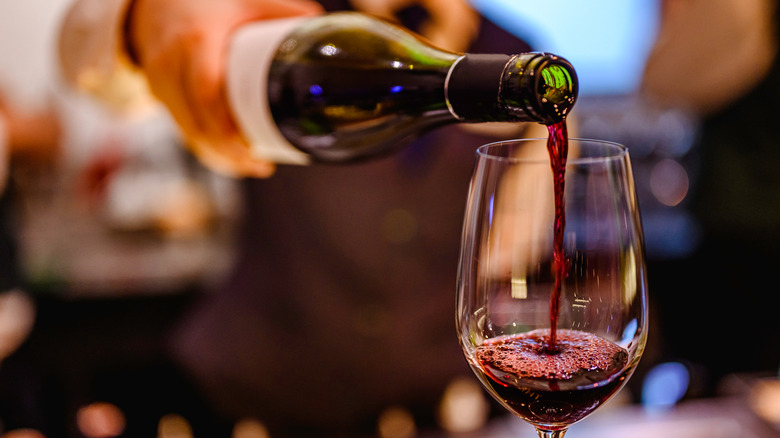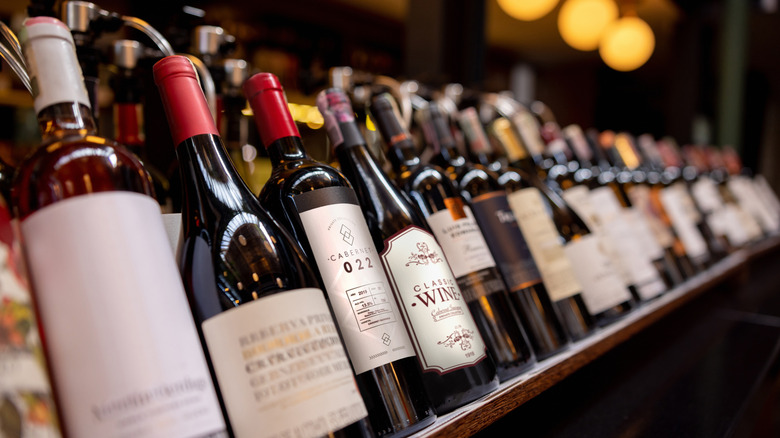You Can Store Open Wine, But There Is A Shelf Life
Cracking open a bottle of wine at home for dinner is always nice, but storing open wine presents a bit of a conundrum. For most people, a glass of wine at dinner on a weekend is normal, and can even be healthy, yet you probably aren't having more than one or two glasses. Even if you're splitting it with someone, treating yourself to weekday wine is usually going to end up with half the bottle unfinished, presenting you with the most terrifying of possibilities: wasting wine. The drink has a somewhat undeserved reputation as something finicky and delicate. It should be at the right temperature, poured in the right glass, stored correctly, and more. So how are you supposed to store it after it's open?
You can store open bottles of wine and keep them tasting good — with the catch that you do have a timer running if you want to enjoy it at its best. The more effective way to store open wine is resealed and in the refrigerator, where the cold will help slow down the rate of oxidation. But even then, that doesn't stop it from degrading entirely. And, when it comes to different wines, different types last longer than others.
Open wine's shelf life varies
A good benchmark for open wine is three days, but there are differences depending on what type of wine it is. White wines, which are acidic, stay fresh longer than red wines and will make it around three days without issue. Light white wines and roses, meanwhile, can last from five to seven days. Red wines will lose their flavor faster, but full-bodied reds like Cabernet Sauvignon will last up to five days, with lighter reds like Pinot Noir lasting up to three days and sparkling wines only making it one day. Sweeter fortified wines are more resilient, but won't last forever, and should be finished within a month.
To give your open wine the best shot at survival, you can do things beyond refrigerating it. Since exposure to air in the bottle is the cause of oxidation, you can transfer your wine to a smaller sealable bottle to protect it more. Vacuum pump stoppers are also a great option for resealing bottles and removing air and can extend how long wine will last in storage by days. If you do end up reusing the cork instead, put the wet, stained side back in instead of the dry side, as the alcohol will have sterilized that end and will protect the wine from contamination. But at the end of the day, the only thing you can do to make sure your wine doesn't go bad is to drink it.

